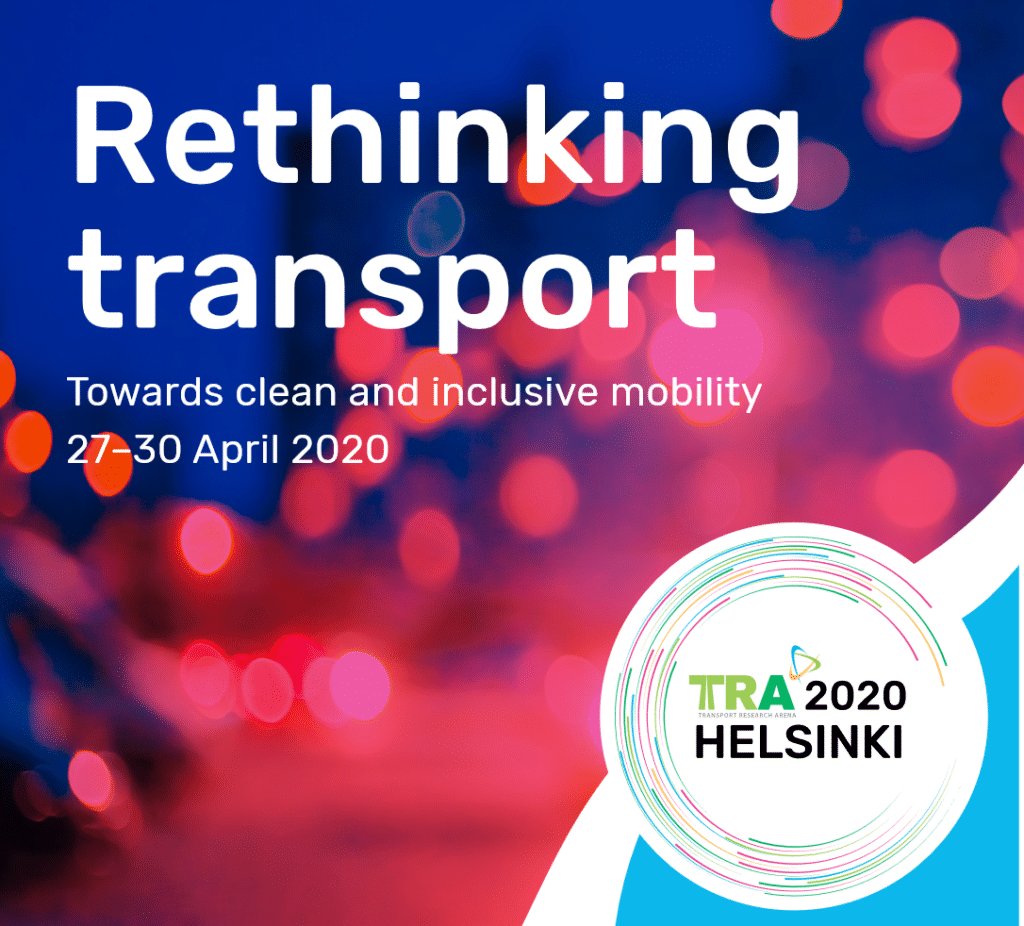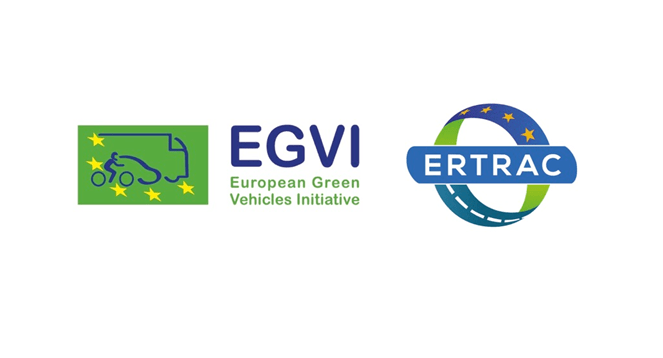Urban transport innovation in the aftermath of COVID-19. Have the disruptors been disrupted?
This online Strategic Session was organised in the framework of the Transport Research Arena 2020, originally planned to take place in Helsinki in April 2020. View a recording of the session here.
Urban mobility has been going through a paradigm shift with innovative, multiple and disruptive mobility services, solutions and technologies entering cities at a very fast pace and at the same time. New technologies, transport modes, mobility services, and market players hold the potential to transform mobility in a sustainable and inclusive way, provided they are steered towards reaching sustainable mobility policy goals.
The role of the local authority is changing now that it is no longer the sole provider of mobility services and lines between the public and private sector are blurring. While cities need to provide the right framework conditions and regulations, the private sector should make sure to deliver policy-responsive mobility solutions that help to resolve societal challenges. This requires new governance models and new forms of public-private cooperation, as well as inherently agile regulatory frameworks that can enable and foster innovative solutions resulting from rapid technological change and can factor in uncertainty and flexibility.
What has been happening to these disruptive innovations during the current health crisis, however? And how are they coming out of this unprecedented situation? Have the disrupters been disrupted themselves? And how have cities responded?
COVID-19 and its aftermath are bringing both threats and opportunities to urban mobility - from a massive return to the private car as a safety bubble to a boost of active travel and redesigned cities for people. How can innovation contribute to tackling both old and new mobility challenges as well as capitalize on this unique opportunity to have a drastic shift towards a more sustainable urban mobility ecosystem?
The webinar looked at how disruptive urban transport solutions are coming out of the crisis and reflected on their possible contribution to making cities’ mobility systems bounce back from COVID-19 in a resilient and sustainable way.
Which innovations, from shared mobility and MaaS to e-commerce, automation, or air mobility, will be accelerated by the coronavirus and which ones may be suffering from it? Which other solutions are needed to move forward in the right direction? This and more was discussed with our distinguished panel:
- Krista Huhtala-Jenks, Head of Ecosystem & Sustainability, MaaS Global. View presentation.
- Vassilis Agouridas, Head of EU Public Co-Creation & Regulatory Ecosystem Outreach, AIRBUS Urban Mobility. View presentation.
- Kristian Yde Agerbo, Head of Public Policy and Market Development, VOI Technology
- Jean-Luc di Paola Galloni, Corporate Vice-President Sustainability and External Affairs, Valeo Group. View presentation.
- Philippe Crist, Advisor Innovation & Foresight, International Transport Forum at the OECD
- Malin Broqvist Andersson, Head of Development & International Affairs, Urban Transport Administration, City of Gothenburg
The panel was moderated by Karen Vancluysen, POLIS Secretary General. View introduction.
You can view the recording of the webinar here. For an overview of all TRA 2020 online strategic sessions, see here.
About the speakers
Krista Huhtala-Jenks is Head of Ecosystem & Sustainability at MaaS Global. She has been working on developing the concept of Mobility as a Service for several years. At MaaS Global, the world's first true MaaS operator with its Whim service, as Head of Ecosystem & Sustainability Krista focuses on spreading the open ecosystem approach, working closely with all stakeholders interested in making MaaS a reality. Having previously worked on MaaS policy and legislation at the Finnish Ministry of Transport and Communications she strongly believes that MaaS is the win-win solution for people's mobility needs and society. Besides her day job, Krista moonlights as a hardcore metalhead.
Vassilis Agouridas is Head of EU Public Co-Creation & Regulatory Ecosystem Outreach at AIRBUS Urban Mobility. He is the Urban Air Mobility (UAM) Initiative Leader, on behalf of Airbus, within the Sustainable Urban Mobility Action Cluster of the EIP-SCC marketplace (European Innovation Partnership, Smart Cities and Communities) launched in October 2017 by the European Commission. Forty-two cities and regions across Europe have joined the initiative to explore through mobility demonstrators the third dimension in urban and peri-urban mobility. In addition, Vassilis is Vice-Chair of the UAM WG of ASD Europe and active member of the ACARE WG on Meeting Societal & Market Needs.
Kristian Yde Agerbo is Head of Public Policy and Market Development at VOI Technology. Before that, he had roles in Public Policy at Uber and in the Ministry of Business in Denmark.
Jean-Luc di Paola Galloni is Corporate Vice-President Sustainability and External Affairs at Valeo Group. He joined Valeo in 2007 as CEO’s delegate and member of the Executive Committee, before becoming Group Corporate VP in charge of Sustainable Development & External Affairs in 2010. Serving as Vice-Chairman since 2009 for the European Road Transport Research Advisory Council (ERTRAC), the main automotive technology platform on collaborative research of the EU Commission, Jean-Luc is also a member of the Board of the European Green Vehicle Initiative (EGVI). In 2018, he was elected President of Artemis-IA, the European association for the embedded systems industry & research actors in the ECSEL JU (the Joint Technology Initiative on Electronic Components & Systems of the EU) for which he is Chairman of the Private Members Board. Jean-Luc is a Board member of CLEPA (European Association of Automotive Suppliers), and a member of the Corporate Partnership Board of the International Transport Forum (ITF).
Philippe Crist is Advisor Innovation & Foresight at the International Transport Forum at the OECD. His work focuses on disruptive urban mobility scenarios, including automated driving, and examines how car-based and active mobility, public transport and taxis must adapt to these. He leads ITF work on data science how to leverage new and rapidly growing data sources to improve transport decision-making and is investigating how policy and regulation might adapt to an increasingly algorithmically-driven world. His work also encompasses helping public authorities think about how public space allocation, including curb management, will change under new travel practices and business models.
Malin Broqvist Andersson is Head of Development & International Affairs at the Urban Transport Administration, City of Gothenburg. Since the late 90s, Malin has been working with infrastructure, city planning and strategic environmental assessments at national, regional and local levels, always with sustainable development as a leading star and with science as a basis for decisions. As a former national strategist on sustainable transport at the National Transport Administration, she was involved in research agendas and long-term transport politics. Since 2013 Malin has had leading positions in the City of Gothenburg at the Urban Transport Administration. She is currently Manager of Development and International Affairs, responsible for innovation projects and triple helix collaborations concerning areas like electric vehicles, autonomous driving, connected infrastructure, geofencing, city logistics, digital twins and virtual testbeds.
Karen Vancluysen is Secretary General at POLIS. Karen was appointed as Secretary General of POLIS in September 2014, after having been the network’s Research Director for eight years. POLIS is the leading European network of cities and regions on urban transport innovation. Since 1989, members have been working together to develop sustainable and innovative urban mobility solutions for the city of today and tomorrow. The network also engages in debates around topical issues such as active travel, shared mobility services, MaaS, automated transport, electromobility and innovative governance approaches. Prior to joining POLIS in 2004, Karen was Network Manager at ACCESS-EUROCITIES for a New Mobility Culture and project manager at Langzaam Verkeer, a Belgian centre for mobility management. Since 1998, she has been involved in European urban transport networking and policy activities and many EU research and innovation projects covering a wide range of urban mobility topics.


